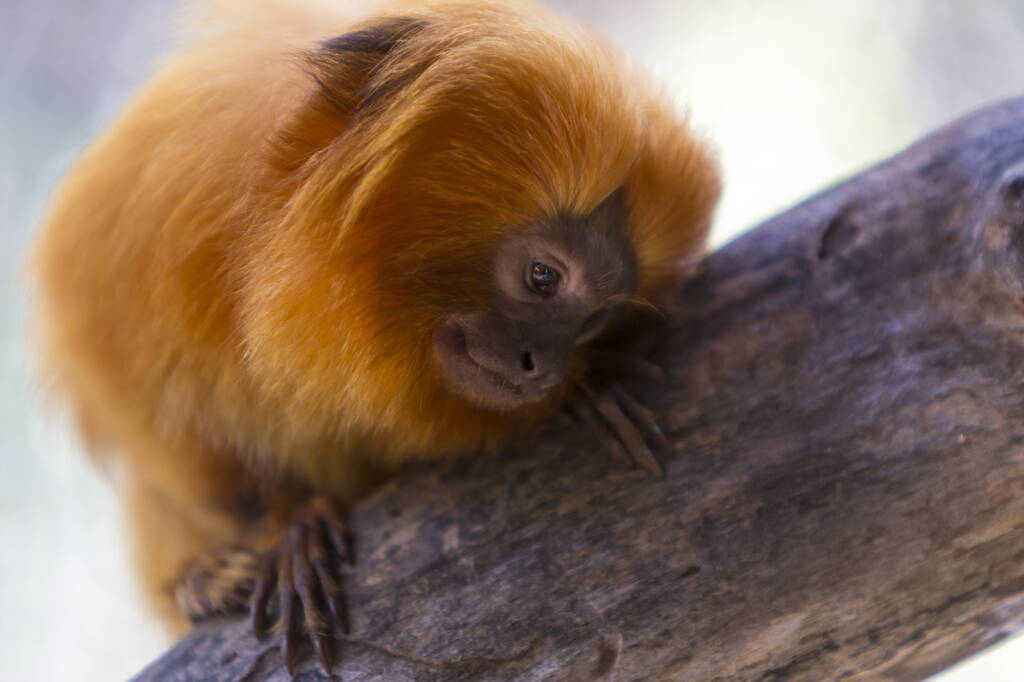In Loro Parque, we work in the breeding of the golden lion tamarin (Leontopithecus rosalia), an endangered primate species from Brazil.
The male and female of our pair of golden lion tamarins came separately to Loro Parque between 2014 and 2015, and this is the only centre in the Canary Islands to house this species. Our male is from the Heidelberg Zoo, whereas our female tamarin came from the zoo of Copenhagen — both of them collaborate in the same way as Loro Parque in the programme of conservation and breeding of this species.
The golden lion tamarin is a primate species from Eastern Brazil, where there are only 1.700 individuals left in nature in the forests south of Rio de Janeiro, in the Atlantic coast.
Such is the threat of extinction of this species, that part of the population is in the Poço das Antas Biological Reserve of Mongaguá.
Furthermore, there are 210 tamarins in captivity in the conservation program in which zoos from all over the world participate. According to official records, the captive population of golden lion tamarins has up to 559 individuals in 59 zoos of Europe. All of them are owned by the Government of Brazil.
According to the official evaluation of of 2008 by the International Union for Conservation of Nature (IUCN), the golden lion tamarin is classified as endangered as population stability has been reached. In 2003, this species was removed from the critically endangered list.
The golden lion tamarin is characterised by its abundant and silky, golden coat . Its body measures 34 to 40 centimetres long, the tail between 22 and 38 centimetres long and they weigh between 300 and 700 grams.
In this species, parenting tasks are shared by all members of the group, including older siblings. The golden lion tamarins are monogamous and form family groups of 4 to 14 individuals led by the parental couple, and live in that group for years. Therefore, Loro Parque hopes to get a great family; the gestation period lasts between 126 and 130 days and usually brings forth one, two and even three baby tamarins.











